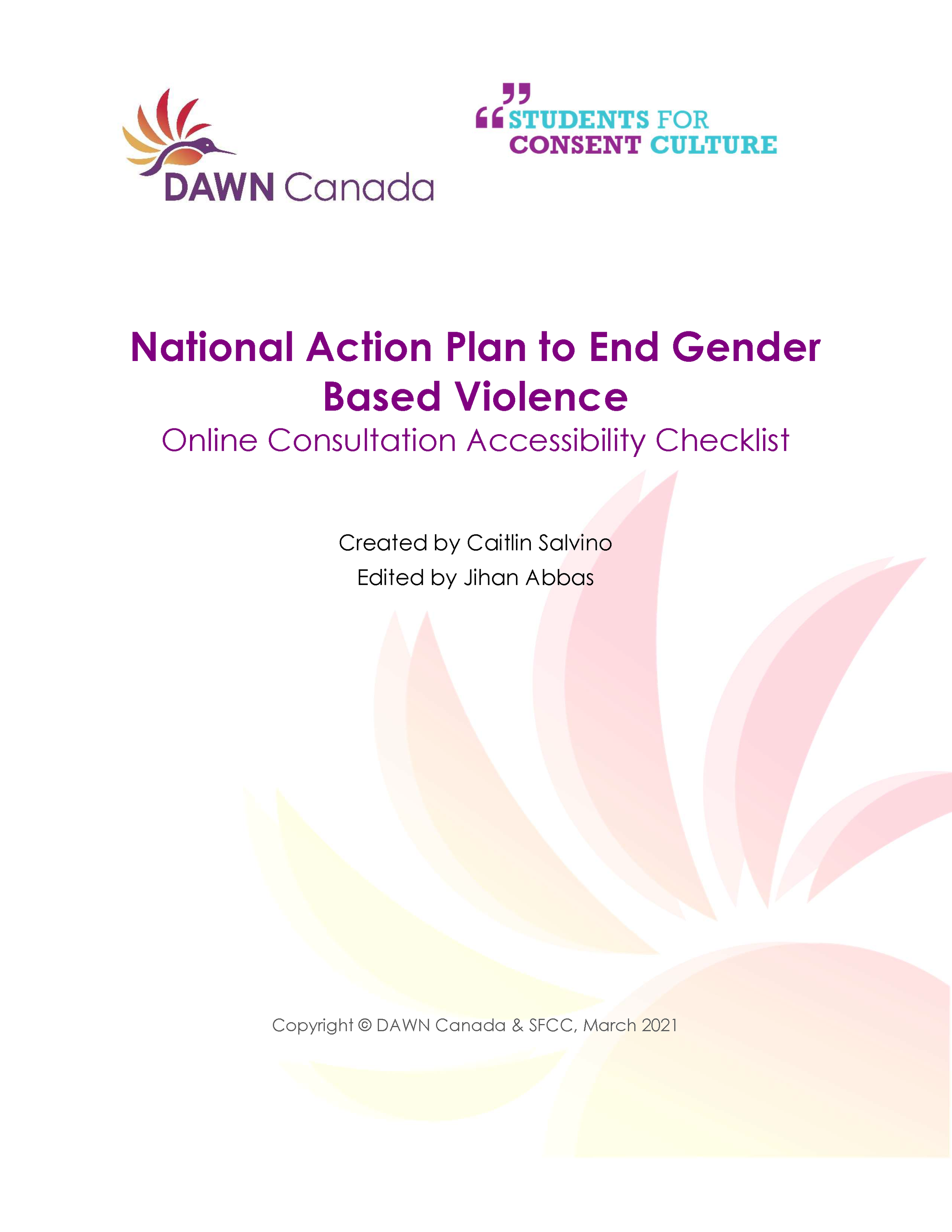Outreach
Accessibility in Events
Having all survivors and students being able to attend SFCC events or events that you may be planning is vital. As described by Dis-abled Women’s Network Canada and Roeher Institute (1995) 60% of women with disabilities are likely to experience some form of violence in the course of their adult lives. If our anti-violence movement is to be intersectional and meaningful, we must ensure that the way we enter into all spaces or share information is accessible and welcoming.
During the consultation process for the National Action Plan, SFCC Director-at-Large Caitlin Salvino prepared an Online Consultation Accessibility Checklist in partnership with Dis-abled Women’s Network Canada. This accessibility checklist is based on the principles of universal design, whereby all events and resources must be designed in a way that is accessible to all, regardless of needs. Accessibility must not be an afterthought, rather it must be central from the outset through to the implementation of all programming to ensure every member of the community can participate fully. We are sharing it here to guide our network in ensuring our online spaces are accessible.
What is a Stand-Alone Policy?
Per our definition, a policy is only stand-alone if it is a separate document from other policies and has its own set of procedures that do not refer to procedures of other policies. A stand-alone sexualised violence policy DOES NOT place the process through the Student Code of Conduct or other institutional procedures such as a tribunal for other academic or non-academic grievances. This is crucial as so many post-secondary institution policies refer to the disciplinary procedures outlined in the Student Code of Conduct or similar documents, but still consider them to be ‘stand-alone’. This is incredibly inappropriate because:
These code of conduct processes were often made with discipline for academic infractions in mind and therefore are not trauma-informed, nor survivor-centric. Furthermore, many of the academic and non-academic tribunal processes often pull members from the same pool, leading to those adjudicating these processes often not having trauma-informed foundations;
They often lead to confusion among survivors as they bounce from policy to policy unable to follow what a process would look like and therefore are unable to make a fully informed decision about whether or not they wish to go through a complaint process through a policy; and
This often means that there is a process outlined for students, but there is not one outlined for if a complaint is filed against an employee of the PSI.
The procedures for responding to a sexual violence complaint must be stand-alone and must be clearly outlined in a step-by-step process for students, staff, and faculty in plain language. This is integral to survivor-centred responses to violence, as it allows those seeking to utilise the policy and procedure the opportunity to evaluate if it is the right direction for them and make informed decisions. It also creates the foundation institutions having structures of support rather than investigations.
**** An exception – we at SFCC believe it is important that in the case of a complaint against an employee of a PSI, that the process and procedure outlined in the employee's collective agreement be respected. It is important that at the same time as we push for trauma-informed and survivor-centric procedures for sexual violence policies that we push for the same standards to be upheld be fought for within labour investigation standards, and that such processes be transparent and accessible to students who may be deciding whether or not they wish to file a complaint against an employee of the university who is covered by a collective agreement. We firmly believe that post-secondary labour and student activists need to come together outside of spaces led by the institution in order to be able to collaborate on the best ways to have these policies and procedures work together to create a campus community ****

